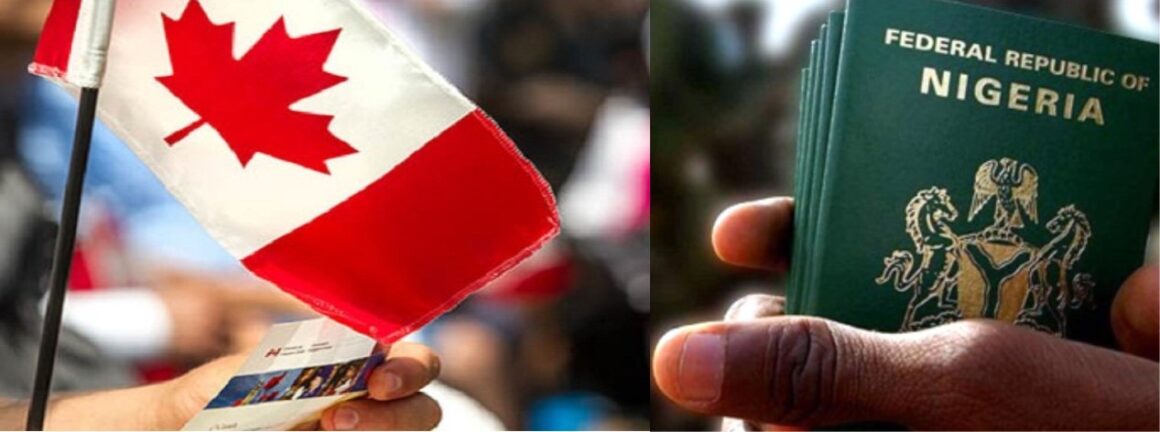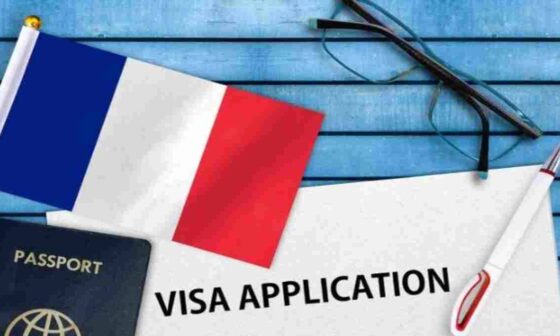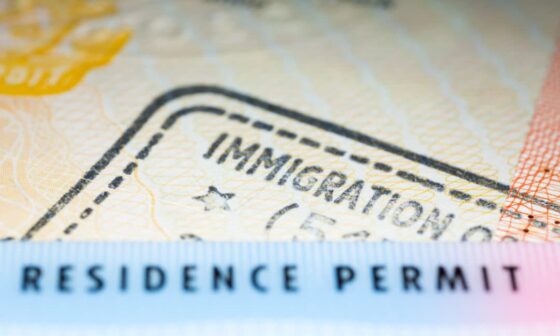Moving to a new nation is an exciting but stressful experience that involves paperwork, planning, and the promise of new chances. I recall assisting my cousin with the relocation procedure from Nigeria to Canada. The experience was eye-opening, emphasizing the value of proper preparation and knowing the requirements. This guide will help you through the necessary documentation and requirements for someone that wants to relocate to Canada from Nigeria, ensuring a simple and successful process.
Step-by-Step Guide to Moving to Canada from Nigeria

#1. Understanding Immigration Programs
Canada provides a variety of immigration options that are geared to specific requirements and skills. Understanding these programs is the first step in the relocation process.
- Express Entry: This is the most common pathway for skilled professionals. It comprises programs such as the Federal Skilled Worker Program, the Federal Skilled Trades Program, and the Canadian Experience Class. Express Entry is a points-based system in which individuals are scored according to factors such as age, education, work experience, and language fluency.
- Provincial Nominee Program (PNP): Canadian provinces and territories can nominate persons seeking to immigrate to their region based on specified economic and labor market criteria. Each province has its own requirements and streams (for example, skilled workers and overseas grads).
- Family Sponsorship: If you have family members who are Canadian citizens or permanent residents, they can help you relocate to Canada. This program provides for sponsorship of spouses, common-law partners, dependent children, parents, and grandparents.
- Study Permit: A study permit is required for those who wish to study in Canada. This allows you to stay in Canada for the duration of your studies and can lead to permanent residence via programs such as the Post-Graduation Work Permit (PGWP) and, eventually, Express Entry.
#2. Preparing Important Documents

Having all of the required documentation is essential for a successful application. Here are the main documents you need:
- Passport: Make sure your passport is valid for at least six months after your scheduled entry into Canada.
- Educational Credentials Assessment (ECA): This assesses your international degrees and diplomas against Canadian norms. World Education Services (WES) provides this service.
- Language Proficiency Test Results: Proof of English or French proficiency obtained through examinations such as IELTS (International English Language Testing System) or TEF (Test d’évaluation de français). These scores have a big impact on your CRS points.
- Proof of Funds: Evidence that you have enough money to maintain yourself and your family in Canada. This usually comprises bank statements, investment statements, or proof of assets.
- Police Clearance Certificate: This proves that you have no criminal record. This is necessary for every nation where you have resided for six months or more since the age of eighteen.
- Medical Examination: A health assessment to ensure you meet Canada’s health requirements. This must be done by a panel of physicians certified by the Canadian government.
#3. Navigating The Application Process
The application procedure consists of numerous steps, each needing careful attention:
- build an Online Profile: To apply for Express Entry, you must first build an online profile and then submit it to the candidate pool. This profile contains your biographical information, educational history, employment experience, and language test scores.
- Receive an Invitation to Apply (ITA): If you match the criteria and score high enough on the Comprehensive Ranking System (CRS), you will be issued an ITA to apply for permanent residency.
Submit Your Application: Complete the application, including all essential paperwork and costs, within 60 days after getting your ITA. This involves uploading scanned versions of all supporting documents. - Biometrics and Interview: You may be asked to produce biometric information (fingerprints and a photo) and attend an interview at a Canadian visa office.
#4. Readying for Arrival
Once your application is granted, there are various stages you must complete before landing in Canada:
- Arrange for Accommodation: Before you arrive, look into temporary or permanent accommodation options. Airbnb, Kijiji, and local real estate companies can assist.
- Plan your finances: Open a Canadian bank account and transfer the appropriate cash. This aids in spending management and credit development in Canada.
- Know the Weather and Culture: Get ready for Canada’s various climate and cultural differences. Researching the local weather, dress requirements, and cultural customs might aid with the transition.
Following these precise procedures will allow you to efficiently traverse the complex process of relocating to Canada from Nigeria, ensuring that you meet all requirements and are well-prepared for your new life in Canada.
Template for an Immigration Application Cover Letter
Here’s a template you can use to write your cover letter for an immigration application:
[Your name]
[Your address]
[City, State, Zip Code].
[email address]
[Date]
Immigration, Refugees, and Citizenship Canada (Office Address)
[City, State, Zip Code].
Dear Sir or Madam,
Advertisements
I am writing to apply for permanent residence in Canada under the [particular program, e.g., Federal Skilled Worker Program] using the Express Entry system. My application includes all of the documentation specified in the requirements. The following are the details of my application:
- Passport Number: [your passport number]
- Educational Credential Assessment: Completed by [Assessing Body, e.g., WES].
- Language Proficiency: IELTS overall band score [Your Score]
- Proof of Funds: [Information on Financial Proof]
- Police Clearance Certificate is Attached.
- Medical examination was completed on [date].
I am excited to contribute to Canada’s economy and society. I am grateful for your consideration of my application.
Sincerely, [Your Name].
For your convenience, you can download a customizable version of this cover letter template below. This will help you ensure that all necessary details are included and formatted correctly.
How Long Does the Application Process Take?
The length of the application process for relocating to Canada varies depending on several factors, including the individual immigration program, the thoroughness of your application, and the number of applications being handled at any one moment. Here’s a more complete breakdown of the expected timeline:
#1. Express Entry
Express Entry takes approximately six months from the date of submission of the entire application. However, this timescale can be modified by several factors:
Advertisements
- Profile Submission: Once you have submitted your Express Entry profile, you will be added to the candidate pool. The amount of time you spend in the pool depends on your Comprehensive Ranking System (CRS) score and the regularity with which Immigration, Refugees, and Citizenship Canada (IRCC) conducts an Invitation to Apply (ITA).
- Invitation to Apply (ITA): Once you obtain an ITA, you have 60 days to submit your full application for permanent residency. Delays in acquiring relevant documentation can prolong this stage of the process.
- Application Processing: After you submit your application, IRCC attempts to process the majority of Express Entry applications within six months. This process begins once they get your complete application and involves background checks, medical tests, and police certificates.
Provincial Nominee Program (PNP)
The PNP process may take longer than Express Entry because of the additional step of acquiring a provincial nomination:
- Provincial Application: To be nominated, you must first apply to the province or territory. The processing period for this stage varies by province and might range from a few weeks to many months.
- Express Entry Application: If you are nominated, you will enter the Express Entry pool (if you are applying through an Express Entry-linked stream) and go through the same process as other Express Entry candidates. The federal processing time after receiving a nomination is usually six months.
- Non-Express Entry PNP: If you apply through a non-Express Entry PNP stream, the total processing time will be longer, often 12-18 months, because you must complete both the provincial and federal processing phases.
Family Sponsorship
The processing period for family sponsorship applications is dependent on the relationship with the sponsor and the complexity of the case.
- Spousal Sponsorship: Spousal sponsorship processing times typically range from 12 to 24 months. This includes determining the sponsor’s eligibility, performing background checks on the candidate, and conducting any mandatory interviews.
- Parents and Grandparents: Because of the huge volume of applications and the complex nature of the screening procedure, the processing time for parents’ and grandparents’ sponsorship can be much longer, frequently lasting 20-24 months or more.
Study Permit
For people applying for a study permit, the processing period can vary greatly depending on the nation of residence and the completeness of the application.
- General Processing Time: Study permit applications are typically handled between four to twelve weeks. However, processing times may be longer during peak periods.
- Student Direct Stream (SDS): Nigerian students may be qualified for the SDS, which provides speedier processing timeframes of approximately 20 calendar days if they satisfy specific conditions, such as upfront verification of finances and a good IELTS score.
Factors influencing processing times
Several factors can affect your application’s processing times, regardless of the program:
- Completeness and Accuracy: Submitting a comprehensive and accurate application that includes all essential papers might help avoid delays caused by requests for further information.
- Medical and Background Checks: Delays may arise during the medical examination or background checks, particularly if follow-up exams or extra papers are required.
- Application Volume: As IRCC and provincial authorities manage their workloads, high volumes of applications can cause processing timeframes to be extended.
- Global Events: Situations such as the COVID-19 pandemic can cause processing delays owing to office closures, reduced staff, or additional health and safety precautions.
Tips for Expediting Your Application
While you cannot control all components of processing time, you can take the following actions to help ensure a smoother and perhaps speedier process:
- Prepare Early: Begin gathering required documents and completing any relevant assessments (e.g., language tests, ECAs) long before you want to submit your application.
- Double-check your application: To avoid delays caused by incomplete applications, double-check all information and include all essential papers.
- Respond Promptly: If IRCC or a provincial authority requests more information or documents, provide it as soon as possible to avoid delays in your application processing.
- Remain Informed: Check your application’s status regularly and remain up to date on any changes in immigration policies or processing times.
Understanding the elements that influence processing timelines and making early efforts will help you moderate your expectations and increase your chances of a smooth and speedy application process.
How Much Does It To Relocate to Canada from Nigeria?
To relocate to Canada from Nigeria it typically costs around 2,300 CAD for a single applicant and 4,500 CAD for couples. This amount will also vary depending on which program you apply for.
Keep in mind that this figure does not include the settlement funds that most candidates are required to present to be eligible for Canadian immigration; this amount varies by family size and begins around 13,000 CAD for a single applicant.
Do I Need the IELTS to Relocate to Canada from Nigeria?
If you want to relocate to Canada from Nigeria, you will almost probably be required to take one of Canada’s official language examinations. Almost all Canadian immigration programs require candidates to provide French or English language results from an authorized institution.
You can take the IELTS or CELPIP tests to verify your English language proficiency. Both CELPIP and IELTS have testing centers in Nigeria.
The Canadian government does not have a favored test; you can select the one that is most convenient for you.
Resources for Nigerians Relocating to Canada
Canada enthusiastically welcomes Nigerian immigrants and provides several resources to help them transition:
- Nigerian Canadian Association: This non-profit organization offers comprehensive help to Nigerian Canadians and other immigrants, such as housing, education, health, social services, cultural services, economic assistance, and more.
- Igbo Union in Canada: This group, which celebrates indigenous culture, serves as a safe haven for Igbo-speaking people in the Greater Toronto Area.
- Nigeria High Commission: Based in Ottawa, this organization provides consular and visa services to Nigerian nationals and visitors.
- Nigerian Canadian Business Network: This networking association serves as the voice of the Nigerian business community in Canada, promoting personal and professional growth.
- Foreign Path: For aspiring foreign students, Emmanuel Ilondior’s motivating film chronicles his time as an international student in Canada, providing vital insights into life abroad.
Key Takeaways
- Look into numerous immigration programs to see which one best fits your skills and needs.
- To avoid delays, gather all essential documents in advance.
- Make sure all information in your application is correct and full.
- Keep up to date on any changes to immigration policies and procedures.
- Consult with immigration professionals for advice and help.
Conclusion
Relocating to Canada from Nigeria is a large but manageable undertaking with the proper planning and expertise. Following the procedures indicated in this guide will help you traverse the process easily and boost your chances of submitting a successful application. Have you begun the application procedure yet? What challenges have you faced thus far?
Related Articles
- Canadian Immigration: How to Japa From Naija to Canada
- How to Write a Letter of Permission to Travel: Step-by-Step Guide
- How to Get Your Student Visa Approved on the First Attempt
- HOW TO APPLY AND GET STUDY ABROAD PROGRAMS IN 2024-2025
- TOP MASTER’S DEGREE PROGRAMS TO STUDY ABROAD IN 2024-2025
References
Advertisements






